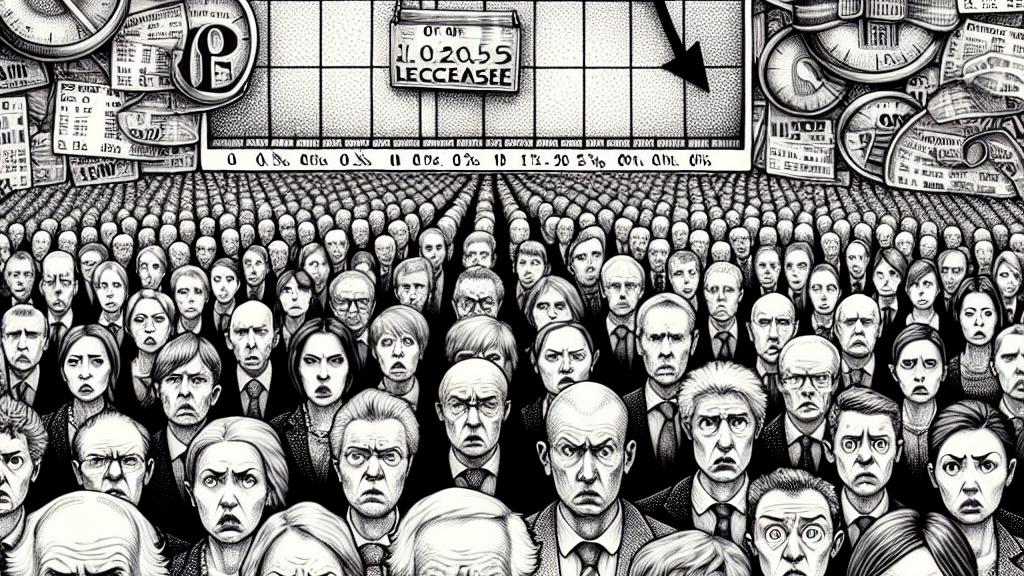Understanding the UK's October 2024 Economic Downturn
Overview
- The UK economy faced an unexpected contraction of 0.1% in October 2024, raising eyebrows and concern.
- This decline marks the second consecutive month of economic shrinkage, suggesting a troubling pattern.
- At the heart of this downturn is a notable drop in production output, a vital driver of economic health.

A Detailed Look at the Economic Landscape
In a surprising turn of events, the United Kingdom's economy contracted by 0.1% in October 2024, as reported by the Office for National Statistics. This downturn is particularly noteworthy as it follows another 0.1% decrease in September, creating a sense of urgency among economists and policymakers alike. The data highlights a concerning trend where production output has notably declined, driving down the GDP figures. After all, when output decreases, it signals that businesses are struggling, leading to immediate questions about job security and overall economic stability. It wasn't what experts were expecting; many had anticipated a slight uptick, leaving stakeholders anxious about the implications for the future.
The Real-Life Implications: Economic Shrinkage Hits Home
What does this mean for ordinary citizens? Let's break it down. Consider a popular local café known for its bustling atmosphere and loyal customers. If this café finds itself with fewer patrons due to economic strains, it might be forced to cut back on hours or let staff go, impacting not just employees but their families as well. Fewer job opportunities mean less disposable income, which could lead to a decline in spending on everyday essentials—from milk and bread to school supplies and entertainment. This cycle of reduced spending can create a domino effect throughout the community: as one establishment struggles, others feel the pinch, leading to broader economic challenges. The stark reality becomes evident: when the economy stumbles, everyday life for many can become significantly tougher.
Government Response: Strategizing Amidst Uncertainty
In light of these troubling economic figures, U.K. Finance Minister Rachel Reeves has publicly acknowledged the disappointing trends yet remains committed to defending the government’s economic strategies. Her approach underscores a critical balancing act: the need to stimulate growth while addressing urgent economic concerns. For instance, should the government invest in large-scale infrastructure projects to create jobs and boost production, or should they prioritize budget cuts to maintain fiscal responsibility? This delicate dance illustrates the complexities faced by leaders; even small shifts in policy can reverberate throughout the economy, influencing everything from employment rates to citizens' standards of living. The choices made today could have lasting impacts, making it essential for leadership to navigate these challenges thoughtfully and deliberately.
Looking Ahead: What This Means for the Future
Ultimately, this economic contraction invites a reflection on the future stability of the U.K. economy. It serves as a reminder of the importance of monitoring key economic indicators and the need for a proactive approach in addressing potential challenges. Recovery is possible, yet it will hinge on the government’s ability to make informed decisions that prioritize both immediate relief and long-term growth. As we navigate these uncertain waters, it is clear that understanding economic shifts goes beyond mere statistics; it involves grasping the real-world implications for families, businesses, and communities. The road ahead may present difficulties, but with thoughtful strategies and determined leadership, there remains hope for a brighter economic horizon.

Loading...